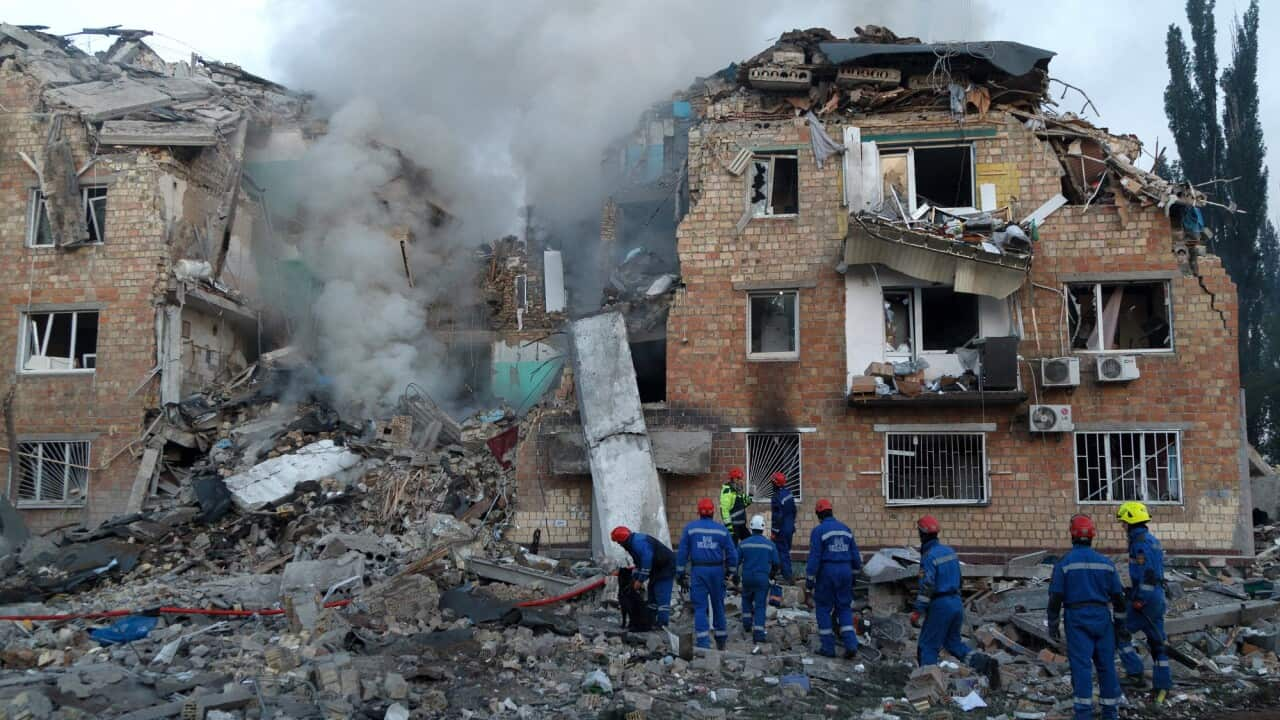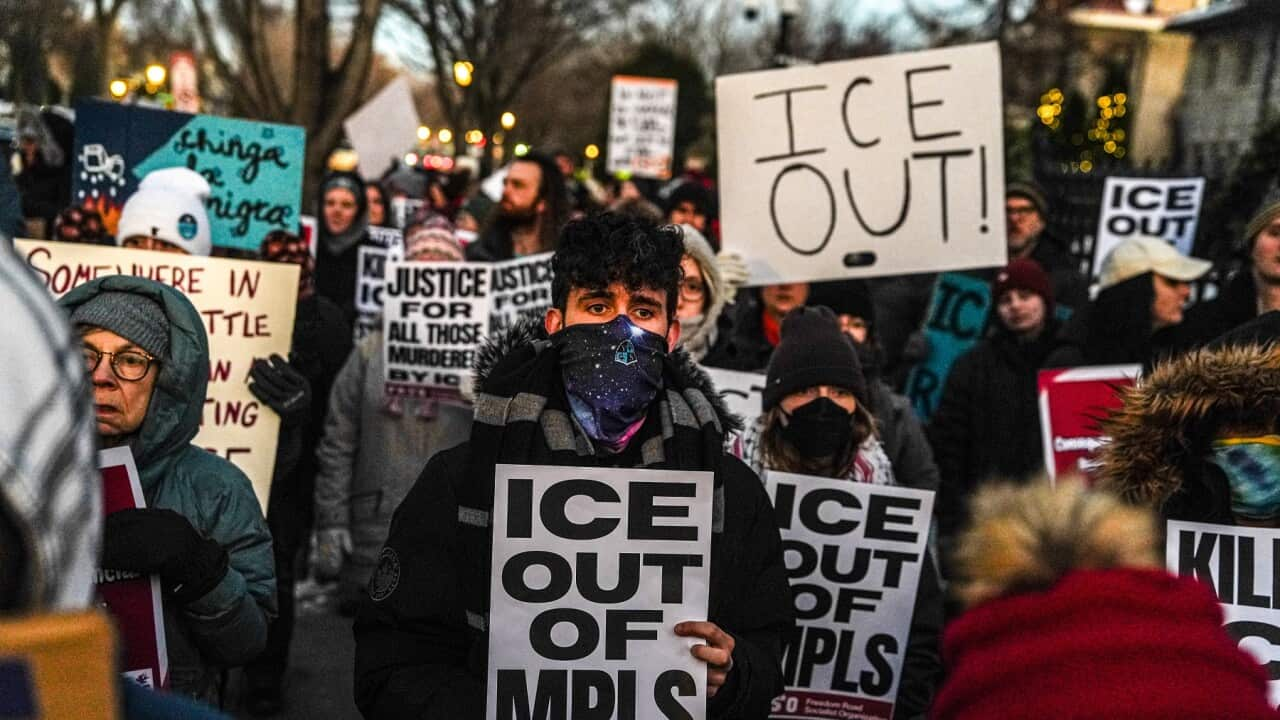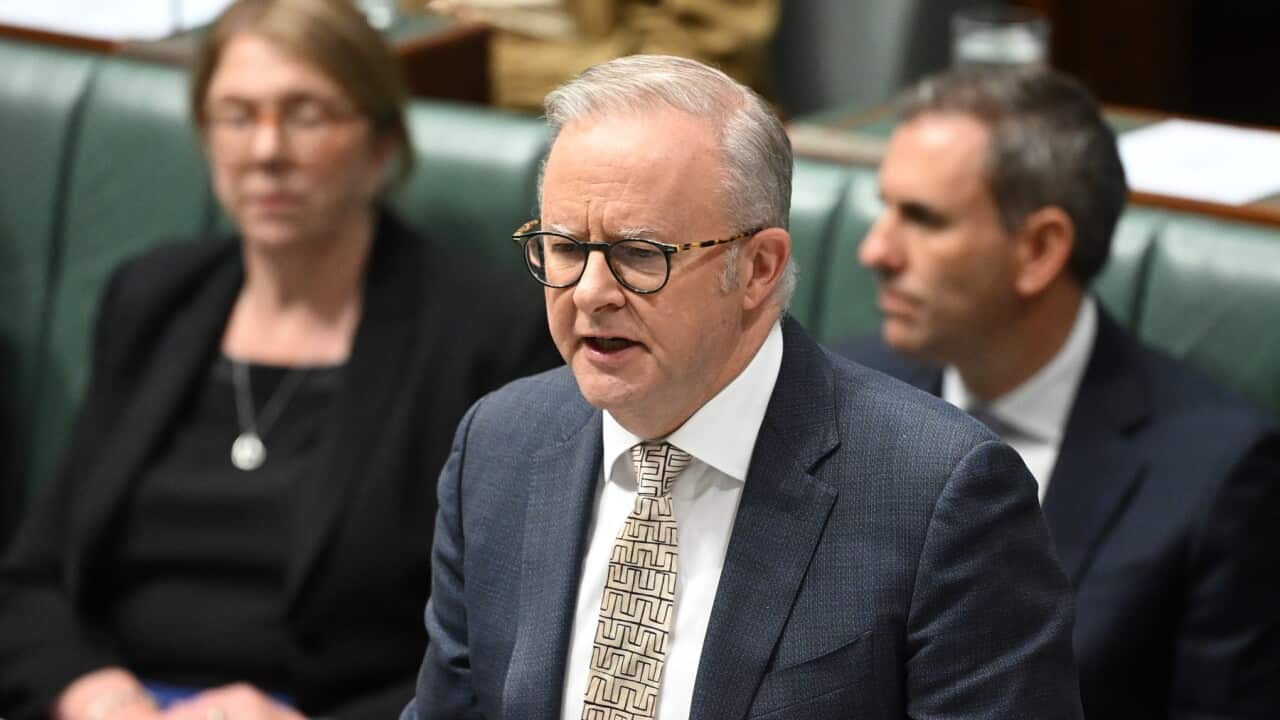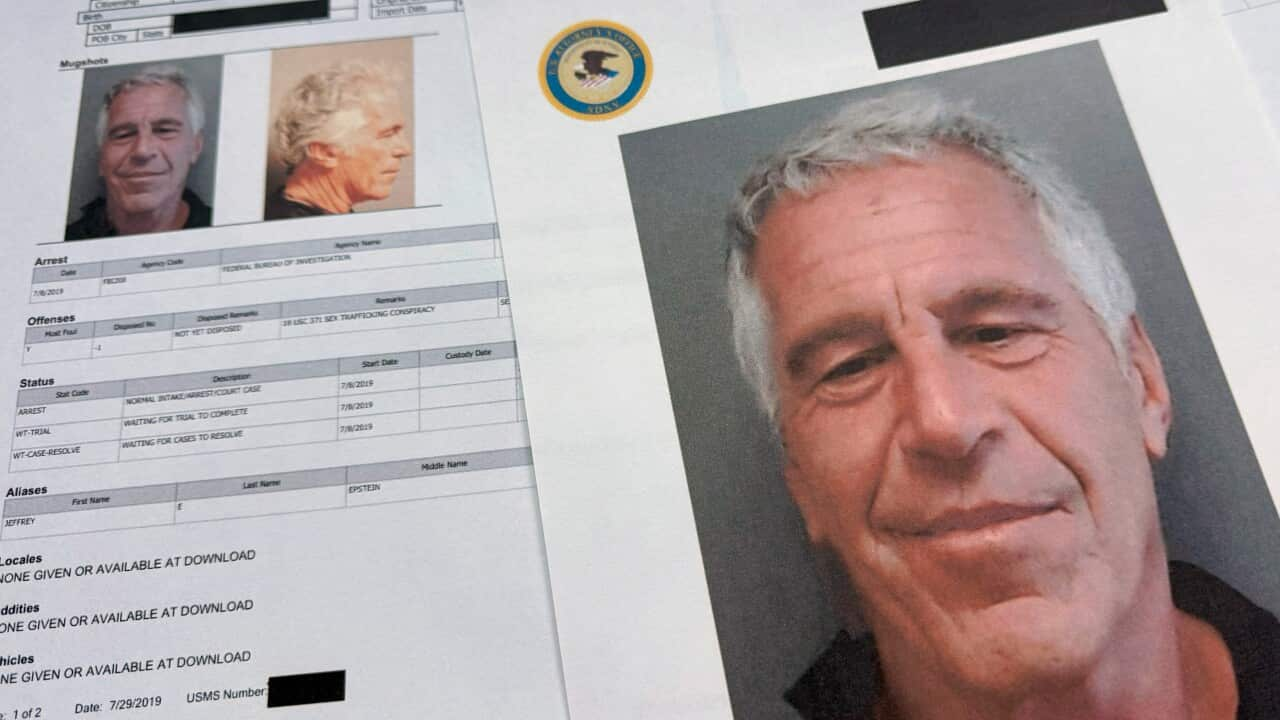Listen to Australian and world news, and follow trending topics with SBS News Podcasts.
TRANSCRIPT
Over the past three years, it's become a familiar headline: a Russian missile and drone attack kills civilians in Ukraine.
The Ukrainians say the latest one has killed at least 23 people in the capital city, Kyiv.
Reports have four children amongst the dead.
Rescuers were digging bodies out rubble at sunrise after the early morning strike.
The strikes hit the Holosiivskyi district in the city's south-west particularly hard, as Hanna Kovryhina, a spokesperson for that district’s police department, explains.
"Today, as a result of a rocket strike on the capital in the Holosiivskyi district, more than 90 residential buildings were damaged, as well as administrative buildings and office premises. Currently, 11 victims in the Holosiivskyi district are known to have been provided with assistance. Police officers, rescuers, and doctors are working on the ground. Three headquarters have also been organised in the district, to which local residents can apply to file applications."
Kyiv's Mayor, Vitali Klitschko, says it's one of the biggest attacks on the city in recent months.
The condemnation, as ever, has been widespread.
UN spokesman Stephane Dujarric leading the chorus from New York.
"You will have seen that earlier this morning we issued a statement in which the Secretary-General condemned the overnight missile and drone attacks by the Russian Federation on Ukrainian cities, which killed and injured many civilians, including children. The Secretary-General stressed that attacks against civilians and civilian infrastructure violate international humanitarian law, are unacceptable and must end immediately."
The attacks came uncomfortably close to European Union and British offices in the city, with two missiles striking near the EU office within twenty seconds of one another.
No staff were hurt.
EU President Ursula von der Leyen vowing it's an act that won't go unpunished.
"It shows that the Kremlin will stop at nothing to terrorise Ukraine, blindly killing civilians: men, women, and children, and even targeting the European Union. We will come forward soon with our 19th package of hard-fighting sanctions. And in parallel, we are advancing the work on the Russian frozen assets to contribute to Ukraine's defence and reconstruction."
For its part, Russia claimed the attack hit military-industrial facilities, and air bases, and says it has repelled fresh Ukrainian attacks.
Russian spokesman Dmitry Peskov claims Russia is still interested in peace, and that Ukraine is guilty of what it accuses Russia of.
"The special military operation continues. You can see that attacks on Russian infrastructure, and often on Russian civilian infrastructure, by the Kyiv regime are also continuing. The Russian armed forces are also fulfilling their tasks. At the same time, Russia remains interested in continuing the negotiation process in order to achieve our goals through political and diplomatic means."
US President Donald Trump is said to be disappointed, by not surprised, by the latest attack.
White House press secretary, Karoline Leavitt, tried to cover all bases in describing his response to the attack.
"These are two countries that have been at war for a very long time. Russia launched this attack on Kyiv. And likewise, Ukraine recently dealt a blow to Russia's oil refineries. They have taken out, as a matter of fact, 20 per cent of Russia's oil refinery capacity over the course of their attacks throughout the month of August. So the president is continuing to watch this intently. And this killing, unfortunately, will continue as long as the war continues, which is why the president wants it to end. And that's why he's worked harder than anyone to end this war, which would have never started if he were president. But perhaps both sides of this war are not ready to end it themselves."
NATO Secretary-General Mark Rutte says the latest attack is very revealing when it comes to Russia's tactics and approach.
"We cannot be naive about Russia. We cannot be naive about Vladimir Putin. And last night is evidence of that. But I think last night is evidence, again, that Russia is capable of a lot, is willing to do whatever they think is necessary to bring the war into a situation of their advantage, but they will not be successful."
Attempts at brokering peace, for the moment, even less successful more than three-and-a- half years after Russia invaded its neighbour.













